Take a classified tour of the most secret U.S. government operations ever, including hidden bunkers, fake attacks, body snatching and more.

10 Secret U.S. Government Operations, Revealed

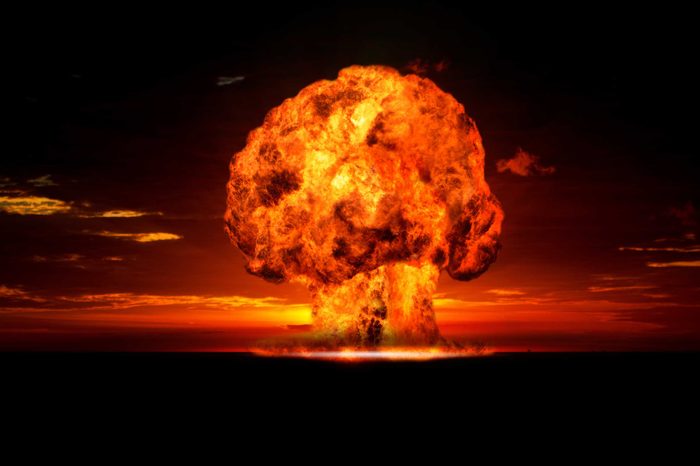
Project Sunshine: Steal corpses
In the 1950s, in an effort to study the effects of nuclear weapons, the federal government established a worldwide network to secretly collect tissue samples from more than 900 human cadavers. The “body snatching” took place in secret, without notification or permission from each deceased’s next of kin.
In 1994, President Bill Clinton formed an advisory committee to investigate so that these government secrets wouldn’t stay secret or continue to inspire conspiracy theorists. The result was a 900-page report acknowledging the unethical and illegal actions taken during Project Sunshine.
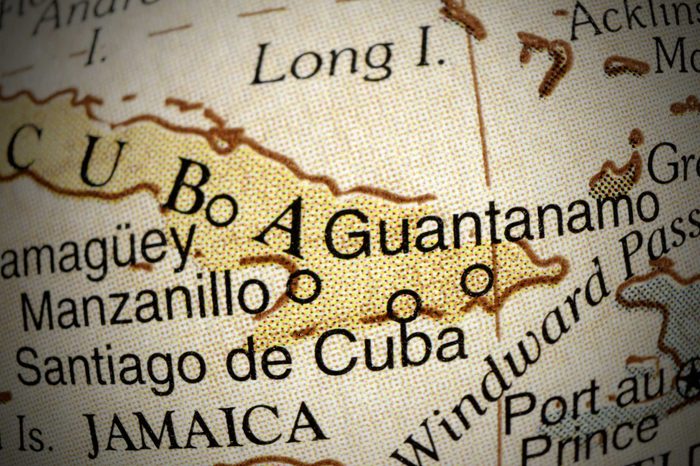
Operation Northwoods: Plan fake terrorist attacks
In response to Fidel Castro’s burgeoning dictatorship and the failed Bay of Pigs Invasion in Cuba, the U.S. Joint Chiefs of Staff circulated a memo on March 13, 1962, with the subject line “Justification for U.S. Military Intervention in Cuba.”
In the missive, the Joint Chiefs outlined suggestions to provoke Cuba, such as “Start rumors (many),” “Sink ship near harbor entrance. Conduct funerals for mock-victims” and “…blow up a U.S. ship in Guantanamo Bay and blame Cuba.” Days later, President John F. Kennedy rejected Operation Northwoods, and Lyman Lemnitzer, chairman of the Joint Chiefs of Staff was denied a second term of office.

Operation Paperclip: Hire Nazi scientists
A bloody conflict like World War II is bound to result in some secret U.S. government operations, but this one is especially cringeworthy. In August 1945, with the smoke of World War II still clearing, President Harry Truman approved the hiring of more than 1,500 German scientists, technicians and engineers.
Among them were Wernher von Braun, the chief rocket engineer of the Third Reich, and Walter Schreiber, the German Army’s wartime chief of medical science, who authorized dangerous experiments on humans. To assure security clearance in the United States, the Joint Intelligence Objectives Agency created false records for the scientists, many of whom were considered wartime criminals.

Operation Mockingbird: Spy on reporters
In a plot worthy of an Orwell novel, between March and June 1963 the CIA spied on two reporters, who, according to the agency, disclosed sensitive national security information in national newspapers. The illegal activity, noted in documents declassified in 2007, included wiretaps on the reporters’ home and office telephones. The CIA noted that the project was “particularly productive in identifying contacts of the newsmen … including senators, members of Congress and other well-placed individuals.”
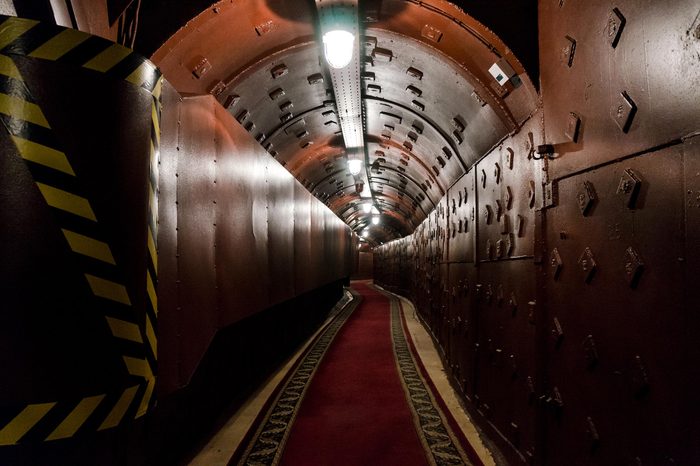
Project Greek Island: Build secret bunkers
The Greenbriar Hotel in White Sulphur Springs, West Virginia, may look like just another luxury resort. But the U.S. government secrets lying beneath the hotel’s west wing remained hidden for 30 years. Built in 1961, a 112,544-square-foot bunker, complete with enough dormitories to accommodate 1,100 people, functioned as a shelter for members of Congress in the event of a nuclear bomb. Revealed by a Washington Post reporter in 1992, the bunker was quickly decommissioned. Don’t worry, the hotel still offers tours.
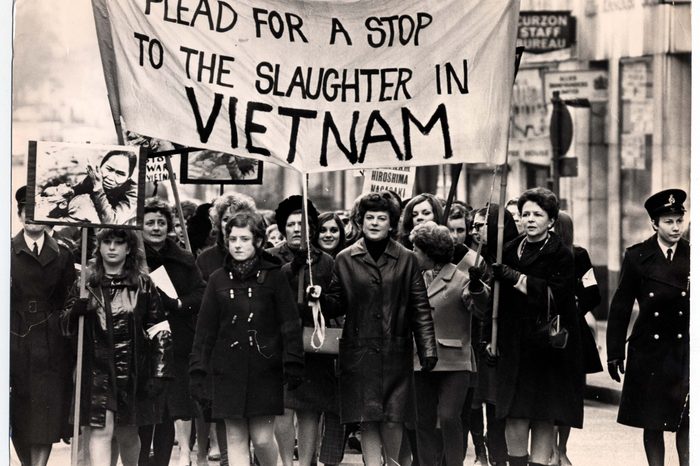
Operation CHAOS: Investigate antiwar protests
In the mid-1960s, public disapproval of the Vietnam War was widespread. President Johnson and the CIA teamed up to investigate the protests on college campuses and throughout the United States. They were searching for foreign influences on the antiwar movement, particularly from Communist countries.
For the next several years, stretching into the Nixon administration, CIA agents went undercover to investigate organizations like the Southern Christian Leadership Conference and the Washington Urban League. They never found any Communist influences, but they compiled thousands of files on innocent individuals. Not to mention, the entire operation was illegal, since the CIA was only legally permitted to collect foreign intelligence.
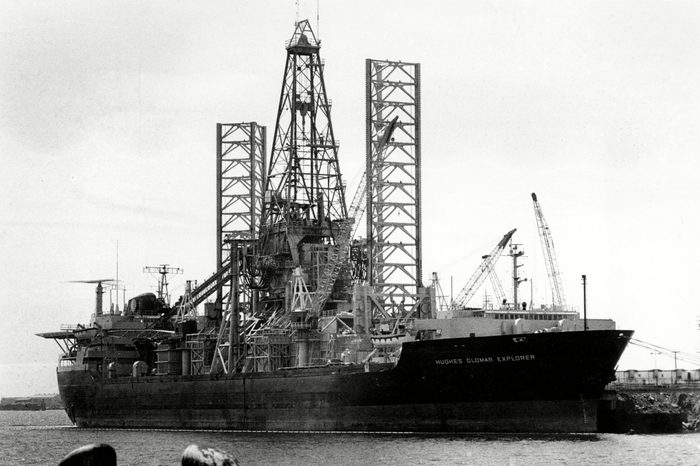
Project Azorian: Recover a sunken submarine
This six-year project was one of the most complicated that the CIA ever undertook. In the late 1960s, a Soviet submarine with the name “K-129” sank about 1,500 miles north of Hawaii, taking a trio of ballistic missiles with it. The CIA and the Department of Defense realized that this provided a valuable opportunity to gain Soviet intelligence, so they began a covert operation to put together a massive deep-sea vessel with a mechanical claw that would lift the submarine more than three miles to the surface.
In the end, the ship was only able to recover a single section of the submarine. To make matters worse for the CIA, thieves broke into the company that built the ship and stole secret documents related to the project. They eventually exposed the story, forcing the CIA to abandon its attempt to recover the remainder of the submarine.
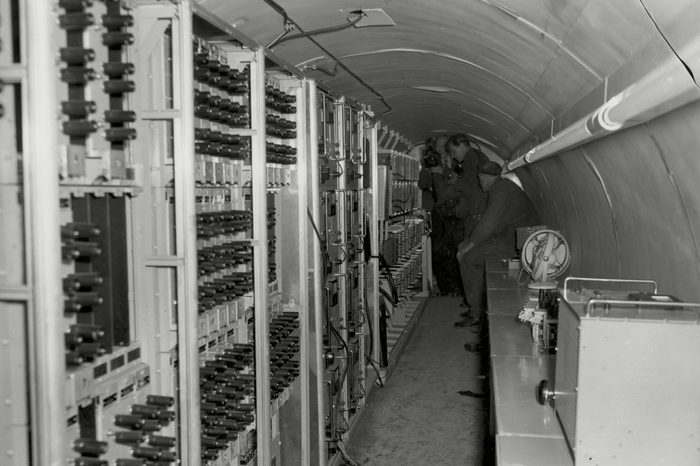
Operation Gold: Intercept Soviet communications
Considered the first covert CIA operation of the Cold War, Operation Gold sought to tap Soviet lines of communication at their military headquarters in Berlin. The CIA, together with the British Secret Intelligence Service, hoped to access the underground cables below the city. Accomplishing this required a massive endeavor, and in 1954, digging began on a nearly 1,500-foot tunnel, precariously located just underneath a major thoroughfare. About nine months after digging began, the first taps were installed.
Unfortunately for the CIA, however, a Soviet mole had become privy to the plans, and in April 1956, a Soviet maintenance crew uncovered the tunnel, forcing the American agents to vacate it. In the 11 months the tunnel was functional, they were able to monitor hundreds of thousands of conversations.

Operation Merlin: Plant fake nuclear blueprints
In the late 1990s, the CIA set out to hinder Iran’s nuclear program, which they viewed as an increasingly dangerous threat. To do that, they arranged for Tehran’s scientists to receive a nuclear blueprint that was intentionally incorrect and wouldn’t produce a working bomb. They gave the blueprints to a Russian scientist, who passed the plans along to the Iranians. However, the scientist noticed the plans were flawed and pointed it out to the Iranians.

Stargate Project: Investigate psychic abilities
This might be the weirdest of all these U.S. government secrets. Starting in the 1970s, the CIA conducted a series of experiments in hopes of unlocking the secret to “remote viewing.” This process, theoretically, allows people to “see” or experience things that are far away by reaching out with their minds. In other words, they wanted to unlock the mystery of psychic abilities. Though the project was small—it only had 15 to 20 participants—it lasted almost 20 years. The CIA wouldn’t shut it down until 1995, when they finally concluded that it hadn’t produced any effective results. Go figure.
Additional reporting by Beth Dreher.
Why trust us
At Reader’s Digest, we’re committed to producing high-quality content by writers with expertise and experience in their field in consultation with relevant, qualified experts. We rely on reputable primary sources, including government and professional organizations and academic institutions as well as our writers’ personal experiences where appropriate. We verify all facts and data, back them with credible sourcing and revisit them over time to ensure they remain accurate and up to date. Read more about our team, our contributors and our editorial policies.
Sources:
- Internet Archive: “Advisory Committee on Human Radiation Experiments”
- George Washington University: “Justification for U.S. Military Intervention in Cuba”
- The Free Lance-Star: “Air Force Hires Nazi Doctor Linked to Ghastly Experiments”
- New York Times: “Project Mockingbird: Spying on Reporters”
- George Washington University: “CIA Family Jewels”
- Washington Post: “The Ultimate Congressional Hideaway”
- Greenbrier Resort: “Bunker Tours”
- New York Times: “Operation Chaos…”
- CIA Museum: “Project AZORIAN”
- CIA Museum: “The Berlin Tunnel”
- The Guardian: “George Bush insists that Iran must not be allowed to develop nuclear weapons. So why, six years ago, did the CIA give the Iranians blueprints to build a bomb?”
- CNET: “CIA Releases Psychic Experiment Documents”




















